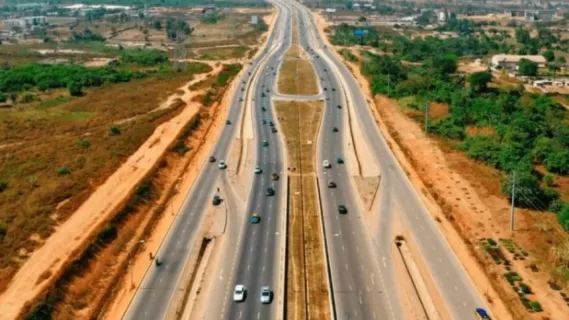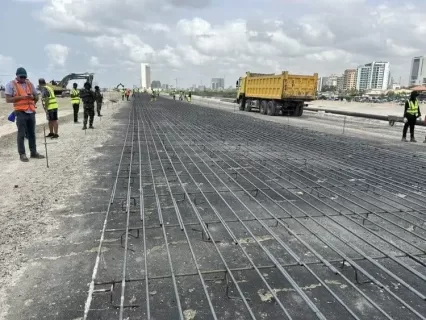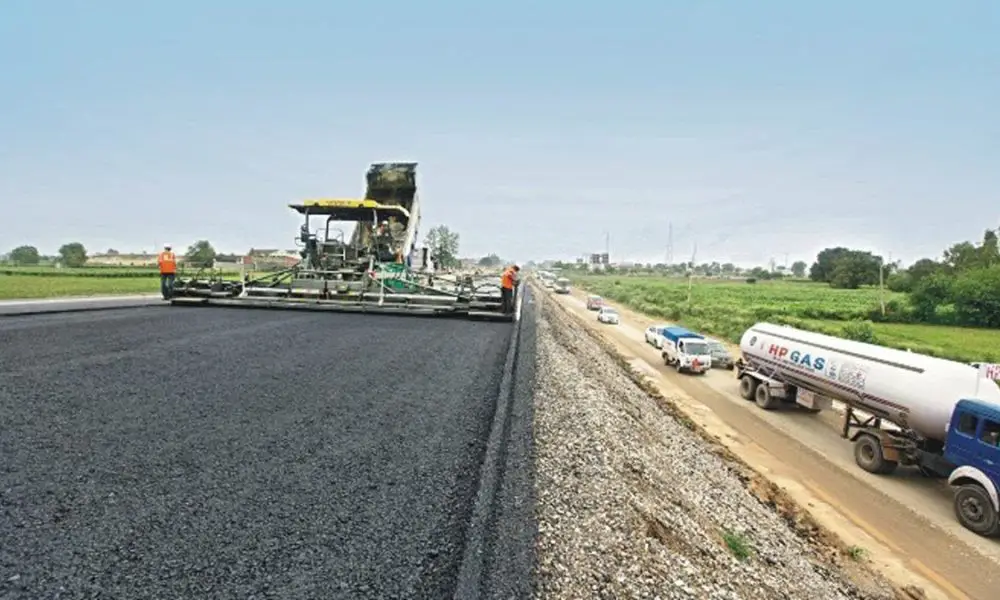The progress on the $2B Lagos-Calabar Coastal Highway Project has begun taking shape and the expected completion time has been announced. The minister of works, David Umahi, recently revealed more details aboutt he significant coastal highway construction. The minister indicated that the project would take eight years for it to be fully completed. He also noted that the project will cost $3.2M per kilometer, which translates to N4bn per kilometer.
He, however, said the cost is a tentative one based on the fact that there are other projects in Nigeria under the same budget. Mr. David Umahi seeks to ensure the delivery of the project as he insights it is a prudent one to improve Nigeria’s transport sector. One of the ways the Nigerian government seeks to recoup its money is by tolling the Lagos-Calabar Coastal Highway. The government expects to have returned its investment on the road after 15 years upon completion.
Current Insights Regarding the Lagos-Calabar Highway Project
With the levels of public interest around the Lagos-Calabar highway project peaking, many have become curious. This has necessitated the Federal Government to step out of the shadows to quell the speculations. Earlier this week, the Federal ministry of Works pledged to continue addressing the concerns, while providing recent insights. The Federal Controller of Works, Mrs Olukoredo Kesha, noted this during a site visit. She was accompanied by the Nigeria Society of Engineers (NSE) to see how the project was taking shape so far. Mrs. Kesha noted that many people have been asking questions about the project’s scope, scale, and progress.

One of the reasons this seems to be so is because of the controversies that have often imbued the project. Her remarks were that, “seeing is believing, let us see things for [ourselves]. So you know how your money is being spent. We organized this technical visity as part of the continuous and professional development of engineers.” The project’s controller provided the engineers with an update, noting the current scope and projections of the project. Moreover, she noted that the progress was at a rapid pace, with substantial parts already completed.
Works Being Implemented on the Mega Project
The controller noted that extensive sand filling had been carried out over a 12 kilometer distance on the Lagos-Calabar highway project. It is also expected that the construction of the road will be divided into two sections in certain areas. The reason cited for this is to avoid disrupting existing infrastructure already in place, such as buildings. The minister commended HITECH Construction Company, the project’s contractors, for their exemplary job. She added that the company had the necessary resources and capacity to ensure a timely completion.

“This is about one of the best-performing projects in the country at the moment. As I said, the contractor has the capacity, and the capacity is not in doubt, even by any layman or a blind person.” Once fully operational, the project is expected to greatly bolster Nigeria’s transport sector. The dignitaries present at the site visit, such as the NSE chairman, noted that it highlighted the importance of collaboration among engineers in improving Nigeria’s infrastructure. The group also visited Eko Atlantic City, another monumental project slowly shaping up.
The Significance of the Lagos-Calabar Coastal Highway Project
The Federal Executive Council in Nigeria led by His Excellency, President Bola Tinubu, flagged off the Lagos-Calabar Coastal highway project. It was decided that the contract would be awarded to Messrs Hitech Construction Africa. This ambitious project is designed to improve national connectivity and will be implemented in stages. This will allow for incremental opening of the completed segments for public use. It will also facilitate in the initiation of toll collection which the government seeks to use to earn back revenue. The Lagos-Calabar coastal highway would integrate significant routes such as the Badagry Expressway and the Fourth Mainland Bridge. The route will also extend to the Lekki Deep Seaport Road. The construction of the highway will immensely facilitate the connection of various routes and regions in North Nigeria. The project will be essential in connecting Nigeria’s transport sector and also ensure easy movement across the country.
Also read:
Morocco Selects US-based Populous as Lead Architect on the World’s Largest Football Stadium
The Scope of the Highway Construction Project
The highway project will be completed in sections with section one phase one (from Ahmadu Bello Way, Victoria Island to Lekki Phase 1) being undertaken by Hitech Construction Company. The minister of works insight that the first section of the 1.3km Lagos Calabar coastal road has been achieved. With an envisioned length of around 650 to 700 kilometers, the project seeks to incorporate rail lines. This will be within the median strips of main roads which will immensely facilitate in enhancing transportation flexibility. The Lagos-Calabar Coastal Highway project uses the construction technique of 11-inch pavements reinforced with 20-millimeter steel. This construction technique underpins the project’s commitment to utilizing local resources. It also promotes indigenous industries in Nigeria. This method leverages Nigeria’s rich bitumen reserves. It also aims to invigorate local cement production and steel manufacturing. This includes steel manufacturing companies such as Ajokuta Steel Company.
State of Affairs Regarding the Highway Construction Project.
Though the project is highly commended and backed up by most of the Nigerian community, some see the project as a loss. One of the reasons is the reclamation of land that is needed to construct the Lagos-Calabar Coastal Highway project. Most insight that the project should revert to its original route design that won’t have people being removed from their lands. The new plan sees that the Lagos portion of the Lagos-Calabar highway is designed to pass through Oniru Beach.
It will also pass through Landmark Beach, and the Good Beach/Sol Beach spanning 1.4km. The construction of the highway along this trajectory will see the demolition of various properties along the way. It will have a direct and negative impact on the Landmark ecosystem which entails various business and recreation zones. This includes Landmark Beach, Landmark Center, and Landmark Boulevard among others. The demolition of these facilities will see around $100 million in value destroyed.
Also read:
700Km Lagos-Calabar Coastal Highway Construction Commences
Lagos-Ibadan road construction in Nigeria suspended to resume in Jan
